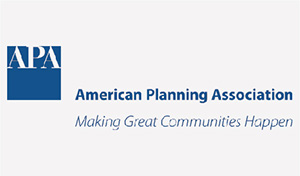The housing density was one part of zoning ordinance changes, which Assistant City Manager Christopher Parker said included a clean-up and simplification of some of the language of the zoning ordinance as well as mandated amendments, such as removing language not in compliance with the Americans with Disabilities Act.
There was also an addition to the zoning language to allow the building of six-story buildings in the Central Business District if a developer installs underground parking or if it had residential units that rented to people with low- to moderate-income levels at fair market rents rates determined by U.S. Department of Housing and Urban Development calculations. Before the zoning change, five stories was the maximum in the CBD.
The council voted unanimously at its meeting last week to ratify the changes. Mayor Karen Weston recused herself from the discussion and vote.
Parker told the councilors the process began in January when the Planning Board set its goals for the year. The board sought a way to facilitate the creation of affordable homes for young families or older downsizing residents. To accomplish it, the board wanted to allow more density, mimicking neighborhoods built during the 1950s and 1960s, when smaller homes were built closer together to accommodate families working and stationed at Pease Air Force Base . Zoning regulations since created requirements for larger lot sizes for the construction of homes.
Parker said the vehicle in which the city seeks to have developers build these smaller homes is through the transfer of development rights.
"Transfer of development rights allows developers to buy additional units when the money goes into a conservation fund," Parker said.
Developers could build single-family homes no bigger than 1,400 square feet on smaller lots. The homes must be sold and cannot be rented. Once built, the homes could be expanded to up to 1,700 square feet by finishing a basement and/or converting a garage into living quarters. "It would allow people to grow into their homes," he said.
Developers would have to meet certain conditions. One, they would have to make a payment into the city's conservation fund at $13,000 per acre of developable land. Second, the proposed density would have to fit the character of the surrounding area. The Planning Board would consider neighbors' concerns and see if it aligns with the city's Master Plan before the board could approve it, Parker said. Developers would still have to pay the same impact fees to the city as they do for other housing developments.
Ward 4 Councilor Marcia Gasses questioned Parker on the requirement that homes cannot be rented. She wondered about a situation where a housing owner had to go into an assisted living facility for an extended period. She said it could provide a hardship if the family couldn't rent the home.
Parker said the purpose of the requirement was so the homes would not become investment properties. Under the scenario described by Gasses, the renting of the house would be allowed under the ordinance, Parker said. He said the Planning Board thought about similar situations and created a policy statement to go along with how the Planning Board would read the ordinance. "We're reasonable people," he said.
Parker said the city mailed a letter to every property owner about the changes and the Planning Board held public hearings in June and July. Only one person spoke, Parker said, and was in favor of it with a slight modification. The City Council also held a public hearing at its meeting last week; no one spoke for or against it.
___
(c)2018 the Foster's Daily Democrat (Dover, N.H.)
Visit the Foster's Daily Democrat (Dover, N.H.) at www.fosters.com
Distributed by Tribune Content Agency, LLC.



